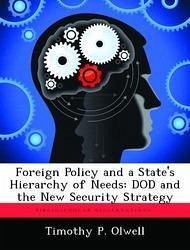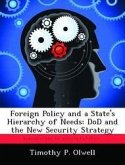The last 60 years saw a great change in United States involvement in the world. From an isolationist position before World War II, the United States moved to world leadership as underwriter of European security and balancer of Soviet expansionism. The reason this country bore the brunt of that huge undertaking was clear. It was in our "Vital National Interests." First, fascist aggression sought world domination, and war resulted. Then, the security of the United States was clearly tied to blocking the spread of communism through a national policy of containment. In November 1989, the Berlin Wall came tumbling down and with it Churchill's famous Iron Curtain. Just two years later, in December of 1991, the Union of Soviet Socialist Republics died. The rapid fall of the Soviet Communist regime did two drastic things to international politics. First, it ended the communist threat to the US and free world. Second, the fall ended the Cold War and with it, bipolarity. Now turbulence worldwide generates as ethnic and nationalistic sentiments surface and cause civil and regional conflicts. Previously, these sentiments were buried under the mantel of communism. These conflicts present new challenges for the world and those concerned with maintenance of its order. The United States has not determined how to define these problems and the interests of this country, nor what the proper response to these events should be. The old bipolar paradigm is inadequate and a new one must be developed. This paper proposes a new model for United States involvement around the world.
Hinweis: Dieser Artikel kann nur an eine deutsche Lieferadresse ausgeliefert werden.
Hinweis: Dieser Artikel kann nur an eine deutsche Lieferadresse ausgeliefert werden.








